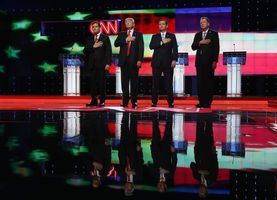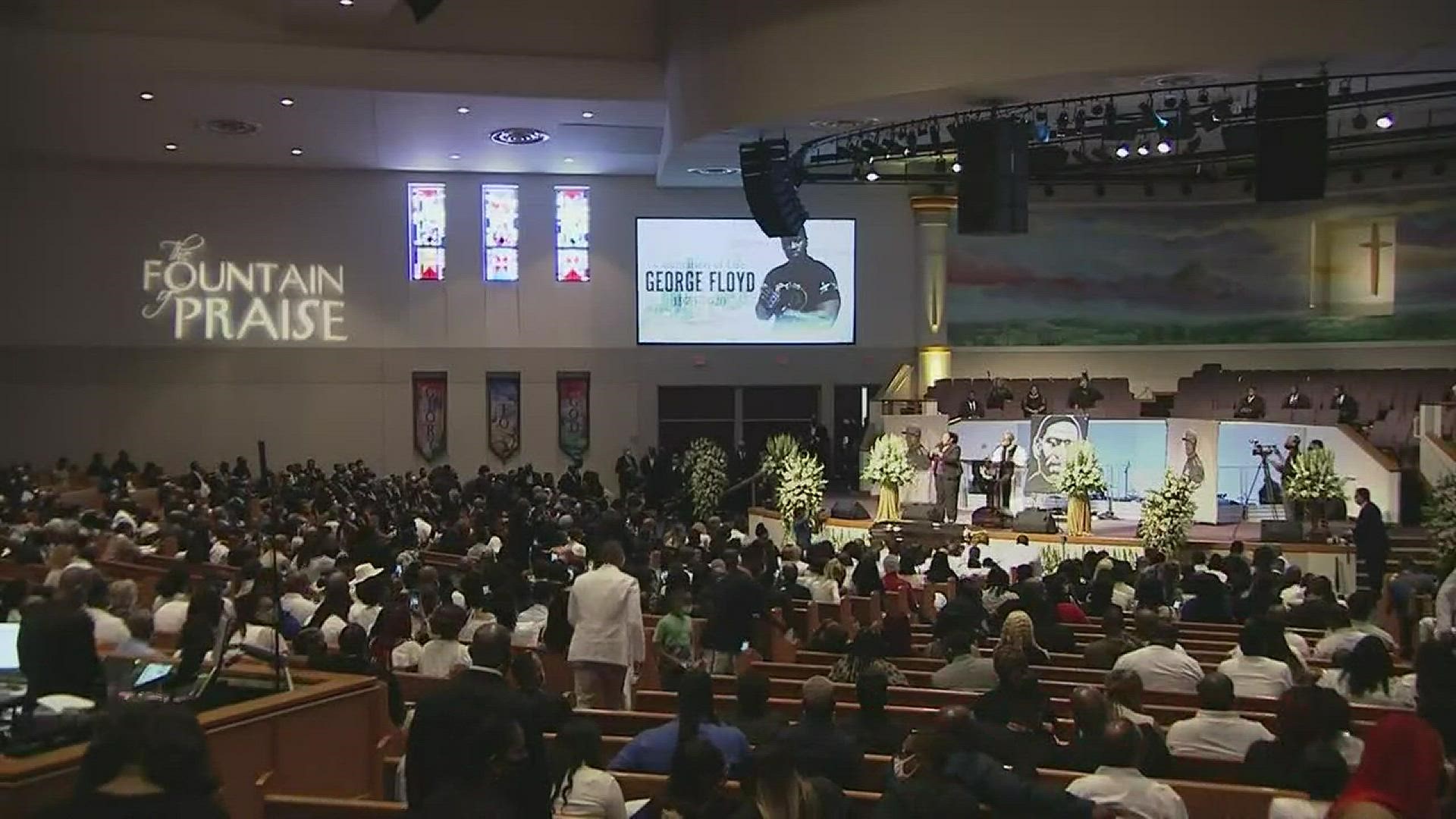![Best clashes from 12th GOP debate [video : 81629332]](http://videos.usatoday.net/Brightcove2/29906170001/2016/03/29906170001_4796378819001_video-still-for-video-4796376896001.jpg?pubId=29906170001)
Before a critical round of primaries on Tuesday, the Republican presidential field gathered for a debate in Florida, site of perhaps next week's most pivotal contest.
Here are the top takeaways from Thursday night's debate:
'Little Marco!' 'Lyin' Ted!' Not in this debate
![GTY 514692794 A POL ELE ELN USA FL [image : 81625118]](http://www.gannett-cdn.com/-mm-/c378af9bbffcef3f91805fa0049ccb9bcc20d0ac/c=356-0-4239-3319/local/-/media/2016/03/10/USATODAY/USATODAY/635932454642761542-GTY-514692794.jpg)
You'd be forgiven if you assumed Thursday's debate would be something akin to a professional wrestling cagematch. After all, it was just a week ago that Trump was not-too-subtly defending his manhood in response to a recent jab from Marco Rubio about the size of his hands. There was none of that at the University of Miami. To be sure, there were shots at Trump, and he returned in kind, but they were mostly policy-oriented.
Rubio hit Trump on Social Security — "the numbers don't add up," he said of Trump's proposals. Both Rubio and Ted Cruz took on the front-runner for being insufficiently supportive of Israel. "On Israel, Donald has said he wants to be neutral between Israel and the Palestinians," Cruz said. "As president, I will not be neutral." That's a far cry from the tone and tenor of recent debates and perhaps a recognition by all the candidates — and particularly Trump, the favorite to emerge as the nominee — of a need to change the public's perception of the GOP campaign has voters look ahead to November.
Trump, perhaps the ultimate provocateur of the 2016 field, seemed almost stunned by what was happening on stage. "So far, I cannot believe how civil it's been up here."
Rubio makes his final pitch at home
![AP GOP 2016 DEBATE A ELN USA FL [image : 81628964]](http://www.gannett-cdn.com/-mm-/66dea35ad2030d530160844b6b76f00f07f3bd37/c=0-0-3525-3013/local/-/media/2016/03/10/USATODAY/USATODAY/635932510312966400-AP-GOP-2016-Debate.1.jpg)
It doesn't take sophisticated political analysis to understand that Rubio needs to win in his home state of Florida next Tuesday to maintain any semblance of a path forward, particularly after poor showings in this week's contests. The Florida senator has clearly moved away from the more personal assault on Trump, an approach he in recent days acknowledged he regretted.
On Thursday night, he aimed to take on Trump by more by demonstrating a superior understanding of policy, whether on entitlements or foreign policy. Rubio, the son of Cuban immigrants, also sought to draw a contrast with Trump on the restoration of relations between the United States and Cuba. Trump said he would've focused on making a better deal with the Communist nation. Rubio countered: "Here's a good deal: Cuba has free elections, Cuba stops putting people in jail for speaking out, Cuba has freedom of the press . .... That's a good deal." Earlier, pushing back against Trump's boasts against political correctness, the Florida senator scored some points with this line: "I'm not interested in being politically correct. I'm interested in being correct."
Polls paint a bleak picture for Rubio's hopes of overtaking Trump, but his more subdued, controlled approach to taking on the front-runner may at least give voters a glimpse of the candidate who, at least for a time, seemed to be the GOP establishment's best chance.
Cruz, Trump find one thing they agree on
![GTY 514695916 A ELN ELE POL USA FL [image : 81629052]](http://www.gannett-cdn.com/-mm-/b6db499013114b515ea716abfce08b0b46c480d8/c=338-0-2662-1986/local/-/media/2016/03/10/USATODAY/USATODAY/635932511262856489-GTY-514695916.jpg)
Cruz and Trump haven't found much to agree on recent weeks, but they did find common cause on one issue Thursday night: delegate math. "I guess there's two of us up here that can, and there are two of us that cannot at this moment," Trump said, referring to himself and Cruz as the only two GOP hopefuls who can still win the nomination.
"Donald is right," Cruz said. "There are only two of us that have a path to winning the nomination: Donald and myself." Indeed, Trump and Cruz are far ahead in the delegate race, with the New York billionaire at 458 and Cruz with 359, according to the most recent Associated Press tally, more than 200 delegates ahead of Rubio's 151.
Cruz clearly wants a one-on-one battle with Trump, who, likewise, doesn't want delegates scattered so widely that it could increase the likelihood of a contested convention that ultimately turns against him. To that end, Trump laid down a marker for how he thinks the nomination should be decided, regardless of whether someone gets secures a majority 1,237 through the primaries, which he called "a very random number."
"I think that whoever gets the most delegates should win," Trump said. "That's what I think."
Kasich looks for contrast
![AP GOP 2016 DEBATE A ELN USA FL [image : 81629906]](http://www.gannett-cdn.com/media/2016/03/11/USATODAY/USATODAY/635932522600541166-AP-GOP-2016-Debate.jpg)
Ohio Gov. John Kasich, like Rubio, faces a must-win in his home state on Tuesday. In the University of Miami debate he sought, as he has throughout the campaign, to highlight his experience. He cited the support he had from "55% of the foreign policy experts in this country" and detailed his many years on the House Armed Services Committee.
He also defended some of his views that aren't exactly in sync with many of the party's most conservative activists. On Common Core, he said "all I'm in favor of in Ohio is high standards." Contrast that with Cruz, who called Common Core "a disaster." On the environment, Kasich said "I do believe we contribute to climate change, but I don't think it has to be ... either you're for some environmental stringent rules or, you know, you're not going to have any jobs. The fact is, you can have both."
These positions might be seen as heretical among some conservatives, but if — and it's a giant if — he can survive in the race long enough for states with larger segments of more moderate voters to hold contests, those views could position him as a more viable alternative to Trump or Cruz.
![Topics Behind the Questions in the Twelfth Republican Debate [oembed : 81641530] [oembed : 81641530] [oembed : 81641530] [oembed : 81641530]](/Portals/_default/Skins/PrestoLegacy/CommonCss/images/smartembed.png)


